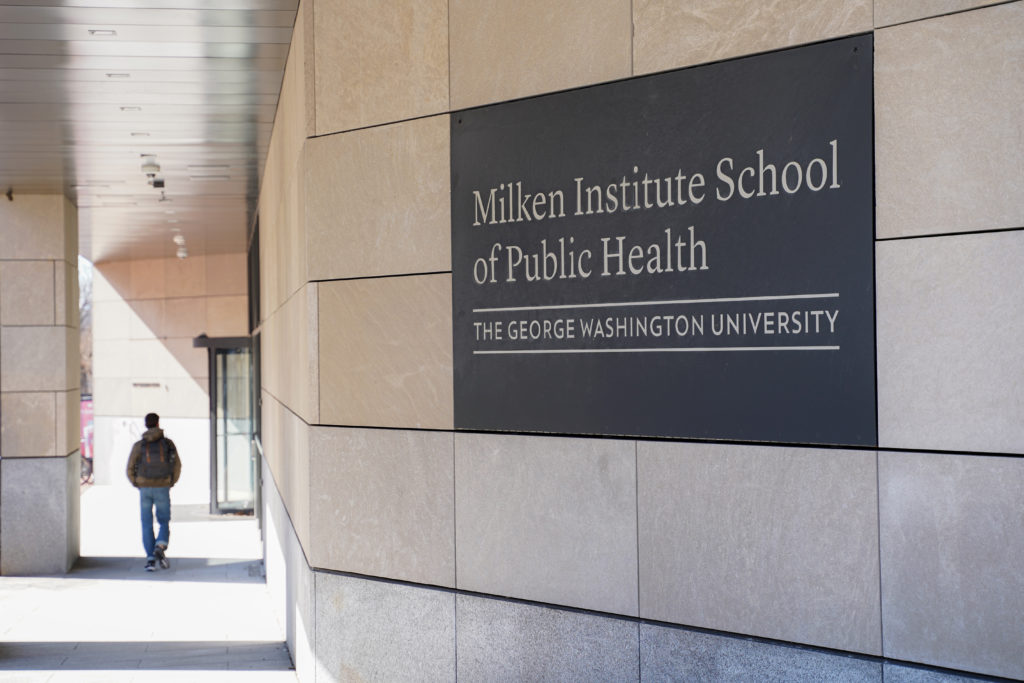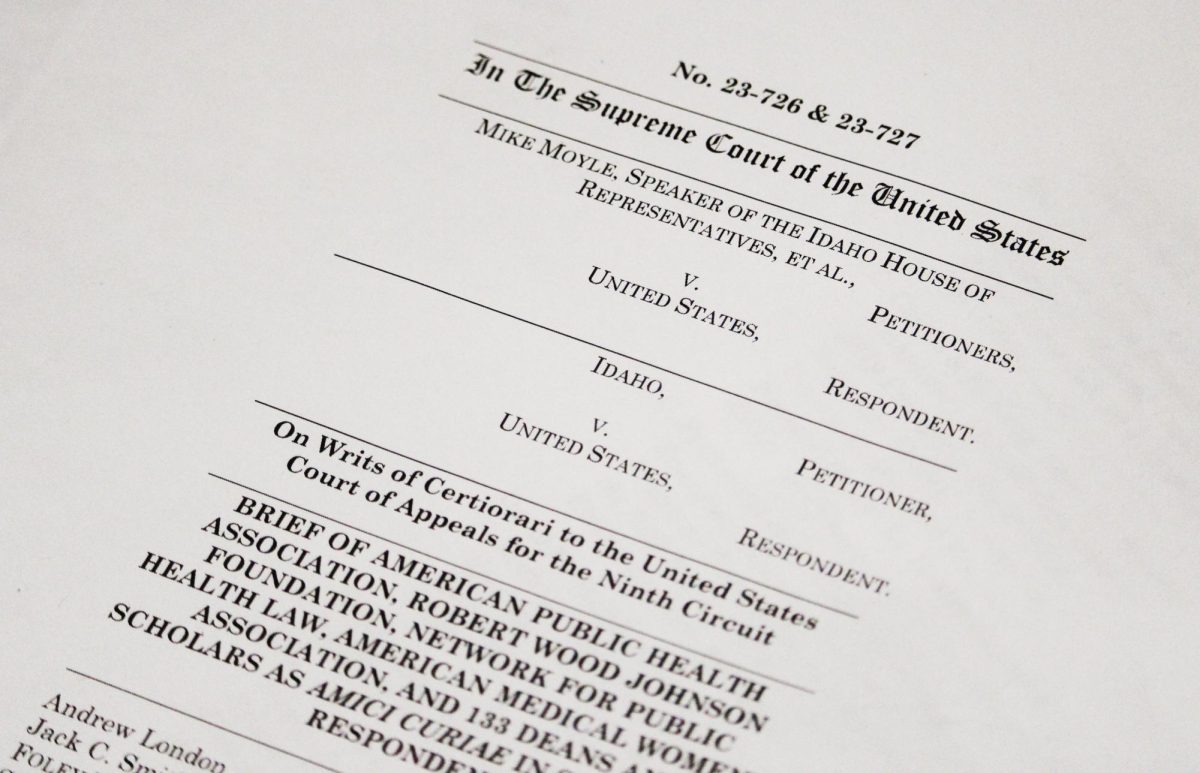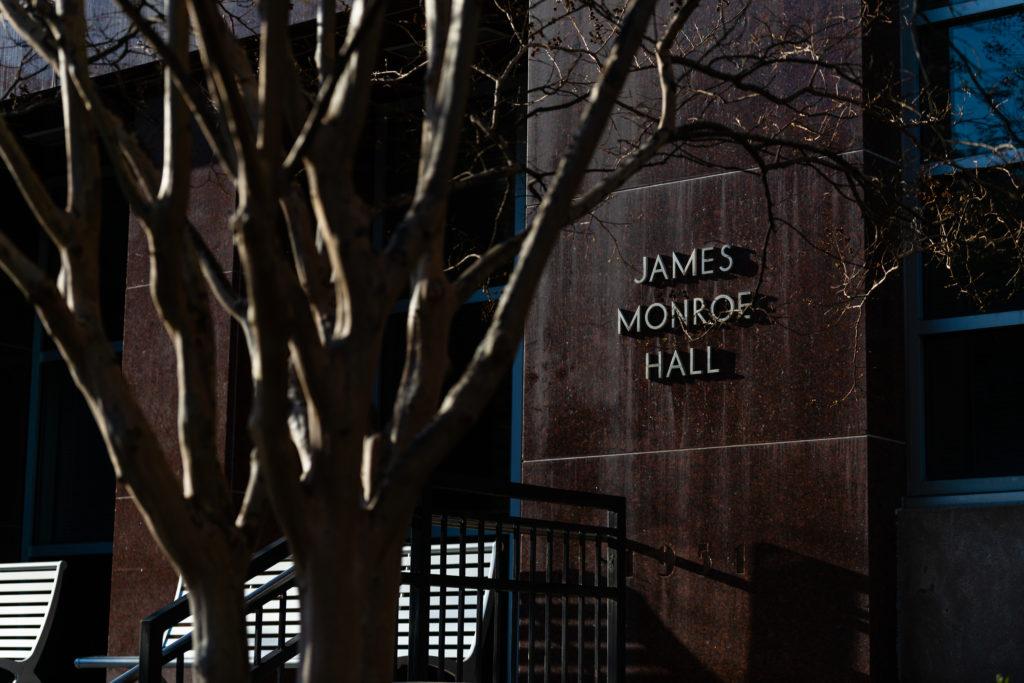The Milken Institute School of Public Health released a case study late last month analyzing its response to the COVID-19 pandemic based on the school’s performance in research, education and operations.
Milken Dean Lynn Goldman and associate deans in the public health school led the case study and found the school’s increase in financial aid, establishment of the COVID testing laboratory and mobilization of the GW Health volunteer task force that assisted D.C.’s COVID testing efforts created a robust framework for education, research and service during the pandemic. The study states their public health institutes can replicate the model of Milken’s response to the pandemic to guide their academic operations during future public health emergencies while maintaining their core mission.
Goldman said Milken officials started documenting the school’s response to the pandemic in 2021 to create a model for the future to ensure academic preparedness in the case of a public health emergency. She said the study identified a rise in COVID research at Milken – marked by the COVID testing lab and the COVID specimen bank, where researchers studied the vaccine for the virus – and a shift in student interest toward public health fields like microbiology and infectious diseases during the pandemic.
“When you do a great thing and don’t write about it and don’t communicate about it, it can be as if though you didn’t do it at all,” Goldman said in an interview.
Goldman said COVID became a “core” research topic within Milken during the pandemic through its participation in the Sanfoni COVID vaccine trials, where GW recruited volunteers to receive the vaccine in February 2021. She said the research equipment, like freezers for COVID vaccines, in Milken allowed researchers to analyze PCR COVID tests processed in campus labs that analyzed the coronavirus so researchers could reproduce the virus and contribute to the pandemic response.
She said Milken could have improved in targeting the spread of misinformation about COVID, noting the “politicization” of the pandemic as a problem not only for universities but also for institutions like the Centers for Disease Control and Prevention and the National Institutes of Health because it can cause greater populations of people to go unvaccinated.
The study states Milken’s long-term responses to continued education consisted of accomplishments like the GW Cares student assistance fund – a scholarship for students financially affected by the pandemic – and expanded digital platforms like Zoom, Blackboard and Webex to enhance virtual teaching innovations.
“We now have ongoing research on COVID; so that is an outgrowth of some of the work that we did that was really more kind of responses to the pandemic, but COVID has become part now of our core research agenda,” Goldman said. “And as it should be, because I think this virus is not going away tomorrow, it’s continuing to transform. It’s continuing to be a major cause of death.”
Experts in infectious disease and public health said universities and public health institutes need to have frequent communications during public health emergencies to ensure the most effective response is implemented.
Amesh Adalja – a senior scholar at the Johns Hopkins Center for Health Security at the Bloomberg School of Public Health and a practicing infectious disease, critical care and emergency medicine physician – said universities should have started to lift strict COVID-19 policies after the release of the vaccine in 2020. He called policies like outdoor masking unnecessary on college campuses, where the population is generally at a lower risk for severe COVID symptoms.
GW mandates all community members be fully vaccinated against COVID unless officials approve their application for a religious or medical exemption. GW dropped its universal indoor mask mandate in September but still requires masks in indoor instructional settings, on GW-operated transportation and in University-operated medical facilities.
“If you’re studying the spread of infectious diseases on college campuses, that’s going to make the infected college campus much more resilient to any kind of infectious disease disrupting their mission,” Adalja said.
David Morton, a professor of industrial engineering and management sciences at Northwestern University, said he has worked on tracking and analyzing data in response to the 2009 swine flu pandemic and the COVID pandemic. He said most universities succeeded in providing information technology support to educators when classes were moved online.
“There was this meme of an undergraduate saying, ‘Oh, great, my professor who’s unable to stop a YouTube video from automatically playing is now going to teach remotely, beautiful,’” Morton said. “I think when universities provided information technology, IT support for faculty, that really had to turn on a dime and teach remotely when they’ve never done that before, I think that made a huge difference.”
Morton said he urges universities to learn from and remember the successes and failures of the pandemic response. He said knowledge of how to provide personal protective equipment and testing is especially useful for future pandemics. Morton said continuing dialogue between universities and public health officials is paramount during a rapidly changing situation like a pandemic.
“It’s interesting that we talk a lot about, ‘Alright, we’re just gonna go back to the way things were before,’” Morton said. “The memory kind of fades, and then are we really just starting from scratch or even worse next time?”








